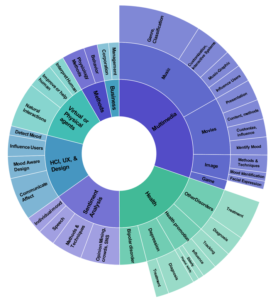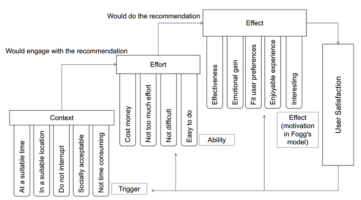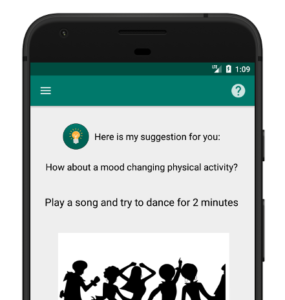Helma Torkamaan, Jürgen Ziegler
Abstract
Commonly used mood measures are either lengthy or too complicated for repeated use. Mood tracking research is, therefore, associated with challenges such as user dissatisfaction, fatigue, or dropouts from studies. Previous efforts to improve user experience are mostly ambiguous concerning their validity and the extent of improvement they provide (e.g., compared to established measures, such as PANAS). This paper investigates the shortening of a self-reported mood measure using smartphones with four independent samples, and provides a baseline for comparing the usability and accuracy of future measures. It first examines whether user self-assessment of overall positive and negative activations with a two-item measure can capture mood as well as I-PANAS-SF. It next examines user’s learning effect in repeated usage of the measure. Finally, it introduces the design of an adaptive mood measure that reduces the number of questions based on its prediction of user mood fluctuations. This adaptive measure can potentially capture specific mood states, as well as overall mood. The paper then explores user satisfaction and compliance with this measure in a longitudinal study. The results of this paper reveal that the investigated two-item measure is a valid and reliable tool for capturing a user’s overall mood and mood fluctuations. The negative activation from this measure is associated with stress. Our results suggest that the association between mood and stress generally depends on the measure of mood and its items. We discovered that a non-complex self-explanatory measure is fairly resilient for repeated use with respect to the required effort and the accuracy of the measure in both daily and weekly evaluations. Adaptively reducing the length of a mood measure does not seem to impact user compliance but may slightly improve usability. We also noticed that positive and negative activations have a slightly different pattern of behavior with reference to the preceding mood states.
Image credit: [ Vincent Le Moign. 2017. Streamline Emoji, Free Icons from the Streamline Icons Pack. https://streamlineicons.com https://www.webalys.com/]
Cite
Helma Torkamaan and Jürgen Ziegler. 2020. Mobile Mood Tracking: An Investigation of Concise and Adaptive Measurement Instruments. Proc. ACM Interact. Mob. Wearable Ubiquitous Technol. 4, 4, Article 155 (December 2020), 30 pages. https://doi.org/10.1145/3432207





